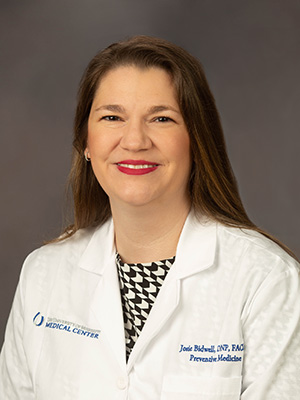Before elective procedures, follow these steps to wellness
When it comes to major elective surgery, your fate could lie within two pairs of hands: your surgeon’s and your own.
Beyond the surgeon’s skills are the steps you can take in the weeks and months beforehand to curtail complications and possibly speed recovery time, a process dubbed “prehabilitation.”
More prehab can mean less rehab.

“It’s not the Burger King model anymore, where you just drive in and we take care of everything,” said Dr. Benjamin Stronach, associate professor of orthopaedic surgery and rehabilitation at the University of Mississippi Medical Center.
“It’s a matter of a personal responsibility: I can’t help you until you help yourself.”
Preparing for surgery by, more or less, repairing your body is potentially effective in major procedures, such as abdominal surgery or, in Stronach’s field, knee and hip replacements.
“We look at everything now, before the surgery can even take place,” Stronach said.
For instance, patients are tested for anemia – a deficiency of healthy red blood cells.
“We also determine whether the patient is obese. Many obese patients are malnourished. This will delay surgery because the risk of complications is higher.”
Those patients are referred to a nutritionist or to a primary care doctor. Losing weight may be necessary.
“If a patient’s BMI (Body Mass Index) is at a certain level and the patient is also diabetic, we won’t do the surgery here,” Stronach said.
BMI is a formula for estimating body fat, based on height and weight. A healthy weight depends on several factors, but someone with a BMI of 30 or above is usually considered obese.
The target figure before orthopaedic surgery, in general, is 45, Stronach said, but that number falls in the presence of other risks. One of the greatest is smoking.

Smoking puts stress on many organ systems in the body, including, of course, the lungs, said Dr. Sonya Shipley, associate professor of family medicine, whose practice includes geriatrics.
“Smoking delays healing,” Shipley said. “I can’t think of any situation where you wouldn’t recommend that someone stop smoking.”
But subtracting things – such as weight and cigarettes – is only the beginning. Some additions may prove worthwhile, such as exercise.
• According to one assessment, available through the National Institutes of Health, “It has been shown that preoperative physical training reduces postoperative complications.”
• The May 2019 issue of the BMJ (formerly the British Medical Journal) cites a small study showing that, for cardiac surgical patients deemed frail, a home exercise program resulted in a 12-percent improvement in scores measured by a Clinical Frailty Scale.
• And the Arthritis Foundation reports a study by three Boston-based institutions, including Harvard Medical School, found the likelihood of needing inpatient rehab fell by 73 percent for knee- and hip-replacement surgery patients who did strength, aerobic and flexibility exercises beginning six weeks before the procedures.
“Recovery is faster because the patient is stronger,” said Stronach, who refers patients to the American Association of Hip and Knee Surgeons website. Posted there are videos of exercises for patients before and after surgery. Activities include stretches for the hamstrings, calves and quads (front thigh muscles).
“Some people try to avoid a lot of motion before their surgery, but moving around can boost recovery,” said Stronach, who recommends an exercise program that begins at least four to six weeks ahead of the procedure.

To help them get moving and make other lifestyle changes, Stronach will refer “motivated patients” to the UMMC Lifestyle Medicine Clinic run by Dr. Josie Bidwell, associate professor of preventive medicine, and a certified lifestyle medicine nurse practitioner.
While Shipley also believes fitness exercises, such as swimming, can be helpful, “the biggest benefits people might see would show up if they do these things long-term and not just a few weeks before surgery,” she said. “A strong body, in general, is able to bounce back quickly.”
How well your mind bounces back is also critical. Coping with a condition called postoperative delirium, for instance, is essential to recovery. More common in older adults, this state of confusion may arise after certain surgeries, can lead to longer hospital stays and has been linked to the need for long-term care.
“Delirium is a medical emergency,” Shipley said. “It’s often not seen that way. But it is, because for people who get delirious, it doesn’t always go away.
“The best thing to do is to try to prevent it.”
Prevention could mean adjusting medications.
“For medicine that keeps you sedated, in general, it’s a good thing to limit it as much as possible,” Shipley said.
After surgery, prevention can mean becoming active soon, Shipley said.
“Being able to remove the catheter as soon as possible can help. Fixing pain, anemia, dehydration – all that can prevent the postop delirium from occurring.”
Estimates vary, but one report published on the National Institutes of Health website said delirium “complicates 15 percent to 50 percent of major operations in older adults.” It can persist for months, Shipley said.
“That’s a big deal. Also, surgical patients who already have dementia and become delirious may not bounce back to their pre-delirium status.”
They may decline further, she said.
“It puts people at risk of institutionalization or death. I don’t think it’s viewed the same way as chest pain, but it is serious, because we can’t always bring people back.”
Anxiety is another possible state of mind. Having a plan before surgery can reduce apprehension, Stronach said.
Because pre- and postoperative stress can undermine recovery, Marcia Bankston, orthopaedic program manager, contacts patients before surgery to question them about their plans – for instance, where they will go for recovery, whether at home or at another facility.
Working out details, large and small, can lighten the stress load – from knowing where you will park at the hospital to having someone with you to help make decisions.
“Having coping skills gives you confidence and a support network makes a difference,” Stronach said.
The benefits of prehab can remain well after recovery.
“Patients will tell me they are grateful for the new hip or knee,” Stronach said, “but some will also say, ‘The biggest thing was that I had to quit smoking.’
“They actually thank me for being the rock in their shoe.”
The above article appears in CONSULT, UMMC’s monthly e-newsletter sharing news about cutting-edge clinical and health science education advances and innovative biomedical research at the Medical Center and giving you tips and suggestions on how you and the people you love can live a healthier life. Click here and enter your email address to receive CONSULT free of charge. You may cancel at any time.



